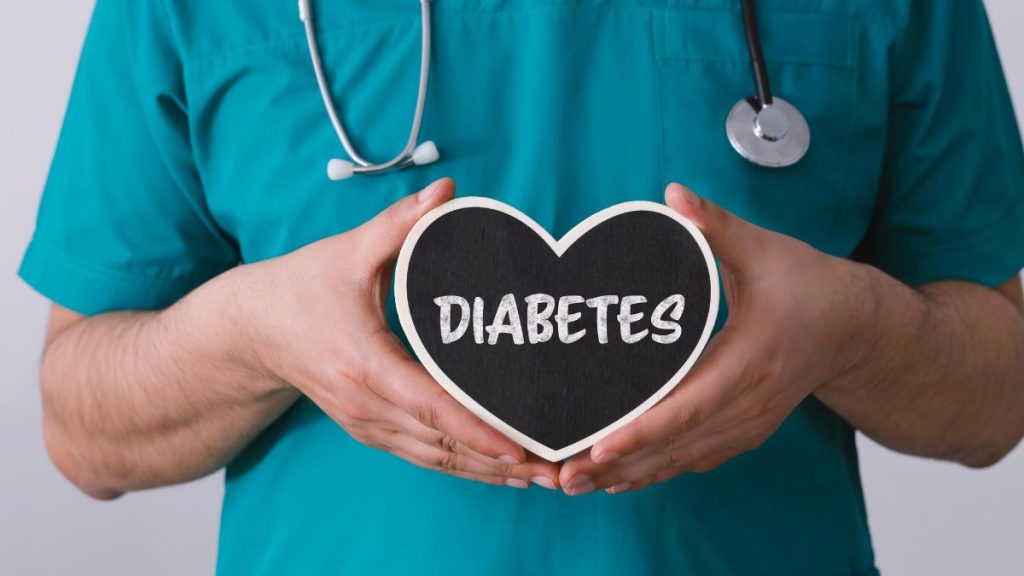Diabetes is one of South Africa’s most serious public health challenges, ranking as the second leading cause of death after tuberculosis. According to the South African Medical Research Council, it claims nearly 90,000 lives each year. Around 12.8% of adults live with diabetes, while up to 67% have prediabetes without knowing it. The disease often develops silently, and because many people do not recognise the Signs of Diabetes early, they face life-threatening complications such as heart disease, kidney failure, nerve damage, and amputations.
With obesity affecting 41% of women and 11% of men, along with poor diet and low physical activity, early detection and simple lifestyle changes can prevent irreversible harm. Recognising the symptoms early gives you the best chance to manage or even reverse the condition.
Understanding Diabetes in Simple Terms
Diabetes occurs when your body cannot properly process glucose (sugar) from the food you eat. This happens when there is too little insulin (Type 1 diabetes) or when the body becomes resistant to insulin (Type 2 diabetes).
- Type 1 diabetes often develops suddenly, especially in children or young adults, when the immune system attacks insulin-producing cells.
- Type 2 diabetes develops gradually and is far more common, especially in adults over 40, though it is now rising among younger people.
The 10 Warning Signs of Diabetes You Should Never Ignore
If you notice several of these symptoms, especially if you are overweight or have a family history of diabetes, consult a doctor immediately.
1. Frequent Urination (Polyuria)
High blood sugar makes your kidneys work overtime to remove excess glucose, causing frequent trips to the bathroom, often at night.
2. Excessive Thirst (Polydipsia)
As your body loses more water through urination, you become dehydrated and extremely thirsty, even after drinking plenty of fluids.
3. Unexplained Weight Loss
If your body cannot use glucose for energy, it breaks down fat and muscle instead, leading to rapid and unexplained weight loss. This is more common in Type 1 diabetes.
4. Constant Fatigue or Weakness
Without enough glucose entering your cells, your body runs low on fuel. You may feel tired, sluggish, or unable to concentrate, even after resting.
5. Blurred Vision
High glucose levels pull fluid from the lenses of your eyes, making it difficult to focus clearly. Over time, this can lead to serious eye damage if untreated.
6. Slow-Healing Wounds or Frequent Infections
Diabetes weakens your immune system and affects circulation, slowing the healing process of cuts, bruises, and sores. Recurrent skin infections or boils are common warning signs.
7. Tingling or Numbness in Hands and Feet
This is a sign of nerve damage (neuropathy) caused by prolonged high blood sugar. It may begin as a pins-and-needles sensation and can progress to pain or loss of feeling.
8. Itchy or Irritated Skin
Dehydration and yeast overgrowth can lead to persistent itching, particularly in the groin, underarms, or genital area.
9. Darkened Skin Patches (Acanthosis Nigricans)
Velvety, dark patches around the neck, armpits, or groin can indicate insulin resistance, a warning sign of developing Type 2 diabetes.
10. Recurrent Thrush or Yeast Infections
High sugar levels feed yeast, leading to frequent genital or oral infections that do not respond well to normal treatments.
When to See a Doctor
If you experience two or more of these symptoms, do not delay testing. Diabetes often progresses quietly until major organs are affected. You should get tested if you:
- Are over 40 years old
- Have a family history of diabetes
- Are overweight or have a large waistline
- Experience high blood pressure or high cholesterol
A simple finger-prick test or HbA1c blood test can confirm your status in minutes.
Where to Get Tested in South Africa
Free or low-cost screening is available at:
- Public health clinics across all provinces
- Clicks Clinics
- Dis-Chem Pharmacies
- Community health drives organised by NGOs and provincial departments
You can also contact Diabetes South Africa for local support groups, education sessions, and resources.
How to Manage or Prevent Diabetes
If you are prediabetic or already diagnosed, you can still live a full and healthy life by taking control of your habits:
- Eat a balanced diet: Focus on vegetables, whole grains, lean proteins, and less processed sugar.
- Exercise regularly: Aim for at least 30 minutes of walking or physical activity most days.
- Maintain a healthy weight: Even modest weight loss improves insulin sensitivity.
- Limit alcohol and avoid smoking: Both worsen blood sugar control.
- Manage stress: Meditation, yoga, and good sleep help regulate hormones.
- Get regular check-ups: Test your blood sugar and blood pressure often.
Check also: Early Signs of Diabetes and Where to Get Tested for Free in South Africa
Simple changes can make a big difference. Many South Africans have reversed prediabetes through lifestyle adjustments alone.
Diabetes does not develop overnight, but once it does, it can cause irreversible damage. The earlier you act, the better your chances of avoiding serious complications. Stay alert to the warning signs, get tested regularly, and prioritise your health.










